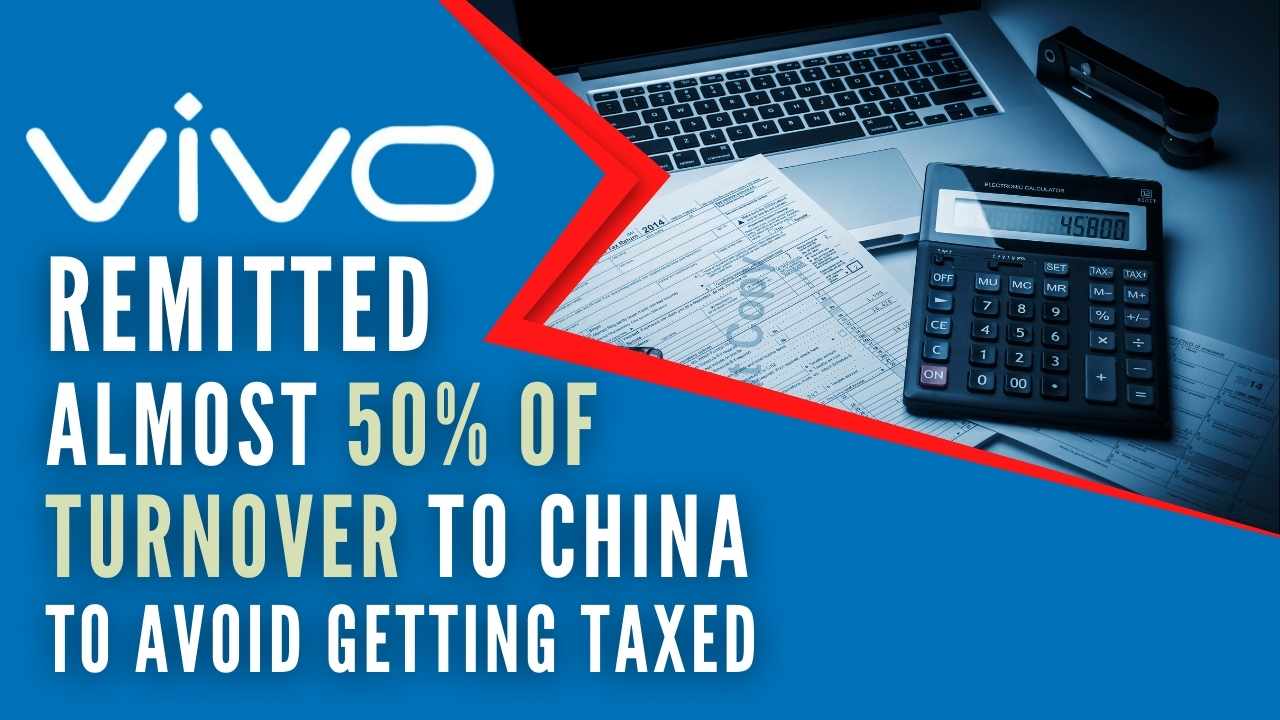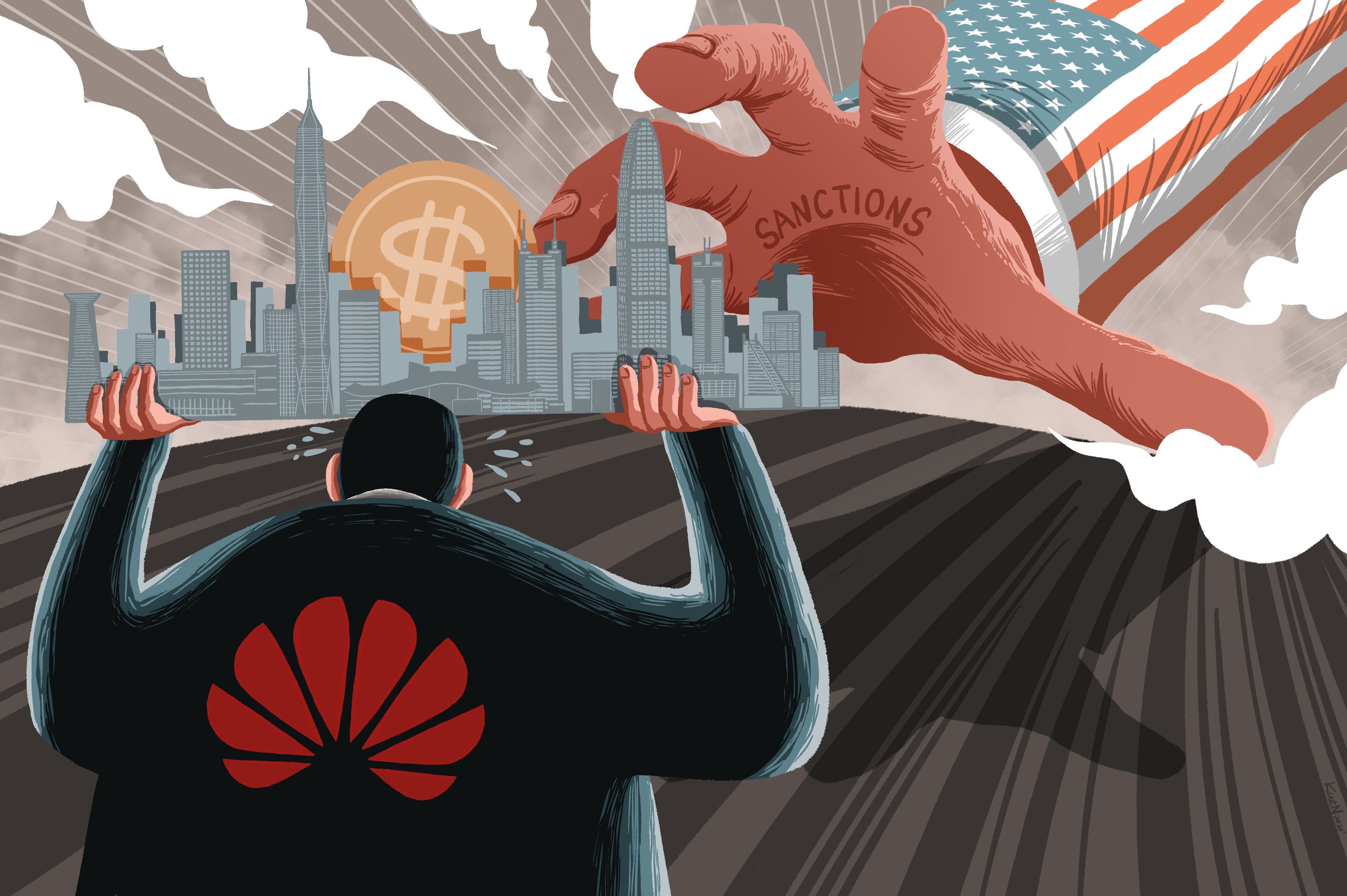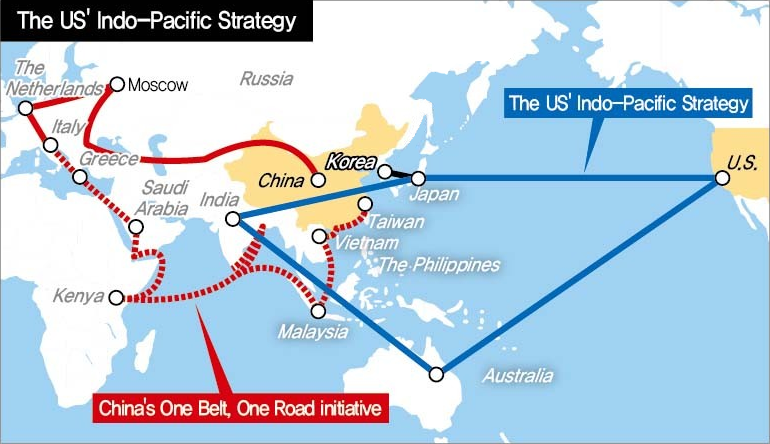Indian Government Bashing At Chinese Smartphone Giants: From Countering Financial Terrorism To Implementing Economic Nationalism, India Is Taking All Potential Efforts To Become A World Leader!
The ED stated that Vivo's Indian arm transferred huge sums to dodge tax payments in India. In an affidavit, the Chinese smartphone giant Vivo defended such allegations and stated that it has contributed deeply towards India's financial integrity and economic stability. Vivo India noted in an affidavit submitted to the Delhi High Court that the remittances possess a legitimate basis and were carried out to procure raw materials and other services required for the company's mobile manufacturing business and were not done to avoid paying taxes in India.

The current piece of content is part of a nearly two-year investigation by the Enforcement Directorate (ED) into the Chinese smartphone manufacturer that began in February of last year. At the start of the essay are charges that Vivo India avoided paying taxes by remitting funds to foreign corporations, followed by similar accusations made by the Indian regulatory body on Chinese smartphone giants, concluding with the notion of India’s strategic steps taken to become a superpower in the global platform.
How it all started?
Conflicts between Indian and Chinese forces in Ladakh’s Galwan Valley in 2020 resulted in the government tightening limits for Chinese involvement in the country.

Last year, the ED initiated a money laundering investigation after learning about an FIR lodged by the Delhi Police’s economic offences wing against a Vivo distributor in Jammu and Kashmir. According to the FIR, a few Chinese shareholders in the company faked their identification credentials. The ED believes the alleged forgery was done to launder unlawful proceeds through shell businesses. It further suspects that the ‘proceeds’ of crime were shifted abroad or invested in other companies by evading Indian tax and enforcement officials.
According to the 32-page complaint, numerous Vivo personnel violated guidelines by visiting ‘sensitive’ areas of Jammu and Kashmir and Ladakh in violation of visa criteria. Foreigners are not permitted to access specific parts of J&K and Ladakh unless they receive a special permit from the government.
The timeline of events where the ED scans the Chinese smartphone Vivo in charge of tax evasion.
July 2022- The ED stated that its Indian arm transferred INR 62,476 Cr to dodge tax payments in India. This announcement came a day after the agency searched 48 places nationwide belonging to VIVO Mobiles India Private Ltd (Vivo India) and its 23 associated entities. The investigations were conducted in multiple states, including Delhi, Uttar Pradesh, Meghalaya, and Maharashtra, among others, under PMLA.
These companies were discovered to have sent large sums to Vivo India. Furthermore, of the total sale profits of INR 1,25,185 Cr, Vivo India sent INR 62,476 Cr, or nearly half of the turnover, primarily to China. “These remittances were made to disclose giant losses in Indian-incorporated companies to avoid paying taxes in India,” according to the statement. The ED stated that it had seized 119 bank accounts belonging to various Vivo businesses, totalling INR 465 Cr. Fixed deposits worth up to INR 66 Cr, 2 kg gold bars, and cash worth up to INR 73 Lakh were seized.
Following a legal battle, the Delhi High Court granted the company some relief. The HC granted access to the accounts on the three conditions that it deposits a bank guarantee of INR 950 Cr, keeps a bank balance of INR 250 Cr, and sends all remittance data to the ED. In an affidavit, the Chinese smartphone giant defended such allegations and stated that it has contributed deeply towards India’s financial integrity and economic stability.
Vivo India noted in an affidavit submitted to the Delhi High Court that the remittances possess a legitimate basis and were carried out to procure raw materials and other services required for the company’s mobile manufacturing business and were not done to avoid paying taxes in India. It also stated that it is developing a new manufacturing unit in India and has contracted with China for consultancy, market research, architectural, and R&D services. Vivo also stated that it paid the necessary customs duties for imports from China and other countries.

The ED also discovered that former Vivo director Bin Lou founded 18 firms in India between 2014 and 2018. In addition, another Chinese citizen, Zhixin Wei, established four businesses in the country. Both of them had left India.
October 2023- Just a week ago, the ED charged Vivo with violating visa rules and syphoning INR 1.07 Lakh Cr ($12.87 Bn) out of India. This comes only days after the agency raided various locations and arrested four firm executives, including a Chinese citizen, under the Prevention of Money Laundering Act of 2002. The arrest happened just days after charges surfaced that Vivo and its Chinese counterpart Xiaomi assisted in unlawfully transferring funds for the news portal NewsClick.
While the recent arrest in 2023 may have been prompted by the NewsClick news, it may not be a coincidence that Chinese President Xi Jinping chose not to attend the G20 summit in September. The Indian government leveraged the summit, attended by practically all world leaders, to promote the country globally. Jinping’s absence was viewed as a move that would compromise India’s position.
The deep history behind the rise and compromise of Chinese smartphones in the Indian market.
The Indian government took an extreme step in 2020, banning 220 Chinese apps in India. This decision was carried out due to security concerns amid escalating tensions between China and India. The Indian government appears to be targeting Chinese smartphone makers with notices demanding information on the data and components used in the smartphones. Vivo, Oppo, Xiaomi, and OnePlus are the businesses in question, while they accounted for almost 70% of the Indian smartphone market.
Also, Amitabh Kant, CEO of Niti Aayog, stated in 2020 that India has yet to decide to let Chinese companies participate in the 5G network rollout, adding that security will be a “major concern” in 5G. India cannot prioritise economic rewards if an investment threatens national security.
There are multiple cases where the Chinese smartphone giants are charged with acts of Financial terrorism in India. Also, how the Chinese smartphones are taking and using data is a matter of Concern. The charges hover over Xiaomi, Huawei, Oppo, OnePlus and Alibaba. The claim was that the companies were paying out unduly large sums to their foreign parents in the form of royalties and/or brand licensing deals. This was being utilised to declare a loss in India, thereby avoiding income tax.

It all started with Xiaomi.
Under the provisions of the FEMA, 1999, the ED seized funds worth INR 5,551.27 Cr from Xiaomi India in April last year. This was followed by further gloomy news for Chinese officials. According to reports published in Indian articles in June 2022, the government has asked Chinese mobile smartphone makers in the country, including Xiaomi, Oppo, Realme, and Vivo, to recruit Indians for important corporate roles like chief executive, operations, financial, and technical officers. They were also reportedly asked to pick Indian contract manufacturers and local dealers.
Huawei and ZTE are under scanner for allegedly installing ‘backdoor’ vulnerabilities to spy for the Chinese government.
It could be related to the government’s inquiry into components used by Chinese telecom firms like Huawei and ZTE. Not only hardware but also software details, particularly pre-installed apps on Chinese cellphones and smartphones, were scrutinised.
Huawei has been struggling since the United States sanctioned it, effectively ending its smartphone industry. The company’s telecom sector has also suffered due to its relations with the Chinese government in India, with the Indian government excluding Huawei and ZTE from 5G testing. However, the government engaged Huawei in a working committee for the 5G rollout. Even before the border clashes, India was under pressure from the United States, which is pushing around the world to ban the use of Chinese 5G gear on the basis that it is purportedly used for spying.
Huawei equipment was employed by two of India’s three major telecom operators, Bharti Airtel and Vodafone Idea. The Chinese company’s equipment and network maintenance contracts are often less expensive than those of European competitors like Ericsson and Nokia, and such equipment is scarce in India.
When Huawei announced the Mate 60 Pro smartphone in late August 2023, it did not provide much information on the chip on its product page other than that it offers improved communication and a more stable network connection. However, consultant firm TechInsights did a breakdown of the Mate 60 afterwards to get a better look at the chip, which seemed to have a 7-nanometer processor built by China’s Semiconductor Manufacturing International Corporation (SMIC).

SMIC, a mainly state-owned Chinese corporation, was included in the US government’s export prohibitions imposed several years ago. US National Security Adviser Jake Sullivan stated that the US should “continue on its course of a ‘small yard, high fence’ set of technology restrictions focused narrowly on national security, regardless of the outcome.” This was the focus point that may have triggered the Indian government also to review its collaborations with Huawei.
The strategic approaches by the Indian government are on the road to becoming a world leader.
Now, this segment may trigger contradictory opinions in your mind. Some may say that the probe by ED is justified and that Chinese companies should be punished for their unlawful actions. On the other hand, critics argue that the world does not want China to become dominant over everyone, and hence, they have shared hands in suppressing Chinese products’ markets across the globe.
Also, there are opinions that India is seen as a better location for positioning manufacturing plants of big giants, and hence, India is leveraging this opportunity to become a world leader. There are many conflicting views. However, without any conflicts, we have tried to explain every narrative with meaningful insights.
India has earned a reputation as a burial ground for many global corporations. In addition to Chinese smartphone behemoths, multinationals such as Amazon, Walmart, Vodafone, Nokia, Samsung, and Google have faced regulatory setbacks or large fines in the Indian market. Between 2014 and 2021, 2,783 foreign corporations and their subsidiaries ceased operations in India.
The protectionist impulses of both the Indian government and local capitalists, who seek a prominent position in the global economy even when the local industry is inadequate, are on display.

In light of geopolitical tensions, the reported decision to restrict Chinese companies from selling phones for less than Rs 12,000 could be viewed as another tool for the Indian government to put pressure on China. However, experts believe that this action is intended to jump-start India’s “faltering” domestic sector.
According to research firm Techarc, the market share of Indian smartphone companies like Lava and Micromax has dropped to 1% in the last seven years, while that of Chinese brands has increased to 99%. In 2015, Indian phones accounted for 68 % of the market, while Chinese brands accounted for only 32 %. In terms of value, Chinese phones accounted for approximately 65 % of the market in 2022.
Will This Benefit Domestic Brands?
If the goal is to assist Indian businesses re-establish themselves as major competitors in the smartphone market, excluding Chinese firms from the lowest sector won’t help much, according to industry observers. It all depends on how much local brands are willing to invest. Even if Chinese brands are pushed out of a segment, other players, like Samsung and Nokia, might give Indian businesses a run for their money.
The irony is that Indian brands were formerly well-known in the market. They no longer have the same level of popularity. To win over the consumer, they would need to come up with very strong offerings. The absence of the Chinese will not help, especially now that people are becoming increasingly concerned about how their data from smartphones is being extracted and exploited. So, let’s hope that we get the best for fulfilling our smartphone desires.

The stance and tactics of the current governance.
The current government’s “Make in India” initiative aims to boost development. For years, New Delhi has pushed for the localisation of smartphone production, including through levies on imported parts, with the goal of stimulating local assembly and then component production. It welcomes foreign cash and technology to help build Indian companies, but it seems that they are unwilling to fully open its market in the spirit of fair competition. Once the sectors sponsored by foreign finance have developed or new markets have opened up, Indian consortiums appear to be keen to take control. They are not above lobbying the government when fair competition gives them no advantage.
One example is India’s crackdown on Chinese smartphone manufacturers. Their presence opened up the Indian smartphone market, allowing it to grow in size and sophistication while also propelling the local smartphone manufacturing industry forward. With India being the world’s second-largest mobile phone manufacturer, the government is placing regulatory pressure on Chinese smartphone manufacturers, which may be justified on this pretext that China is also making attempts to compromise the sovereignty of our country by its unauthorised presence in Galwan’s valley or its undue help to our hostile neighbours.
Is it that easy for other foreign investments to mark their successful feet on Indian soil?
Taiwan is one of the countries trying to increase its investment in India. However, a word of caution: Taiwanese enterprises do not have the same level of political protection as companies in the United States, Europe, and Japan. Taiwanese enterprises may face the same fate as their mainland rivals once their investments in India mature.
Economic nationalism is not a new phenomenon in India. However, in the past, this was a general attitude toward all foreign investment. However, in recent years, India’s campaign on Chinese firms has been particularly harsh. This has been connected to worsening in China-India relations as well as an increase in strategic competition between China and the United States, which views India as an ally. Perhaps New Delhi believes it can get away with it, given the coordinated efforts of the United States, the European Union, Japan, and South Korea, among others, to suppress China and Western countries’ lack of support for China.
India’s economic growth strategy appears to be straightforward: it will work with Washington and its allies to limit China under the US’ Indo-Pacific policy while encouraging the transfer of industries and supply chains to India, ultimately leading to India’s economic take-off and ascent as a great power. The Indian government’s attack on Chinese smartphone manufacturers like Xiaomi is just the beginning. A similar regulation is likely to be extended to producers of other products, like laptops, home appliances, and solar panels.

Conclusion.
For the time being, India will maintain a favourable approach toward corporations from the United States, Japan, and Europe. This is most likely due to India’s desire to attract cash and superior technology from these countries while also being mindful of political pressure. Furthermore, the industrial and supply networks in which foreign high-tech firms invest may not be developed enough to stand independently.
In an era of everyone desiring to become powerful, India’s approaches may not be totally incorrect as to become powerful; one has to make efforts to remove competition, at least, till the point we do not innovate something that can be as powerful that not many others try to imitate that.




